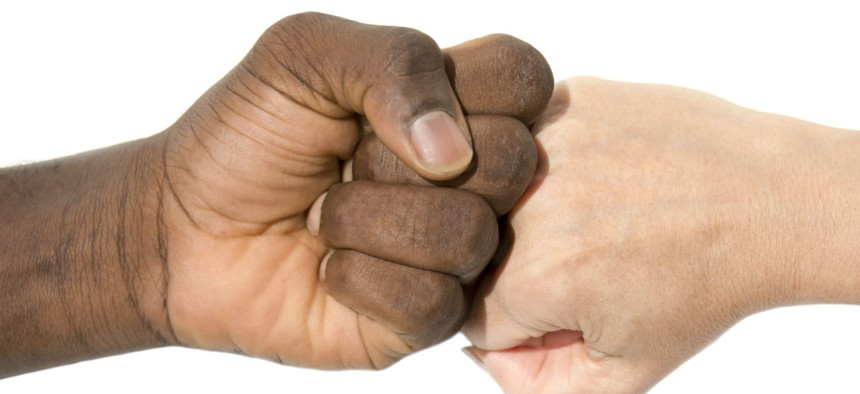
Please Do Not Tell Me That You Are Colorblind
There are two things you can do to combat racial discrimination.
"Here in North Carolina’s third-largest city, officers pulled over African-American drivers for traffic violations at a rate far out of proportion with their share of the local driving population. They used their discretion to search black drivers or their cars more than twice as often as white motorists — even though they found drugs and weapons significantly more often when the driver was white. Officers were more likely to stop black drivers for no discernible reason. And they were more likely to use force if the driver was black, even when they did not encounter physical resistance." -- The Disproportionate Risks of Driving While Black, The New York Times, Oct. 25, 2015
Racial discrimination is everywhere. So please don't tell me that you personally are "colorblind" or that the Black Lives Matter movement is "racist."
According to the Bureau of Justice Statistics' most recent survey on public-police contact (2011), there is a disparity in perceptions by drivers about whether police are pulling them over for legitimate reasons or not. Only 68 percent of black drivers felt this way, versus 74 percent of Hispanic drivers and 84 percent of white drivers. And black drivers were three times as likely as whites to be searched: 6 percent versus 2 percent. (The search rate for Hispanic drivers was highest, at 7 percent.)
I once had the painful experience of listening to a colleague tell me about the "traffic-stop problem," which can reduce even the most dignified, accomplished human being to the equivalent of a cornered animal.
My colleague said that she routinely coached her son about how to dress. She was afraid that if he looked too casual (or wore any type of hoodie, obviously) he would get pulled over by the police and maybe shot.
She was afraid when he left home because she did not know if he would return.
We pride ourselves on overcoming racial discrimination in the workplace but the evidence shows we have far to go. Except when it comes to hiring, we tend to "pull over" white people as opposed to those who seem demonstrably black.
Remember "Are Emily and Greg more employable than Lakisha and Jamal?" (2003) This National Bureau of Economic Research paper tested whether "white-sounding" candidates would get more responses than "black-sounding" ones when applying for jobs.
Indeed, the candidates whose names were perceived to be white were 50 percent more likely to get called.
While this survey is dated, one of the study's primary researchers, Sendhil Mullainathan, told Politifact in 2015 that "large gaps" remain. Northwestern University professor David Figlio, also quoted in the article, said much the same thing.
So . . . racial discrimination: What can you do about it?
Two things:
First, please do not pretend that race, ethnicity, gender, and other categories of identity simply do not exist. That is not a plan. That is denial.
Second, please do not think you will ever understand the experience of another human being as they walk this planet.
Self-consciousness, real consciousness is what's needed. We can start by having a conversation with ourselves.
Copyright 2016 by Dannielle Blumenthal. All opinions are the author's own and do not necessarily represent the views of her employer or any other organization or entity.






